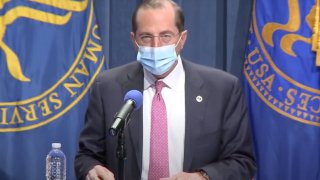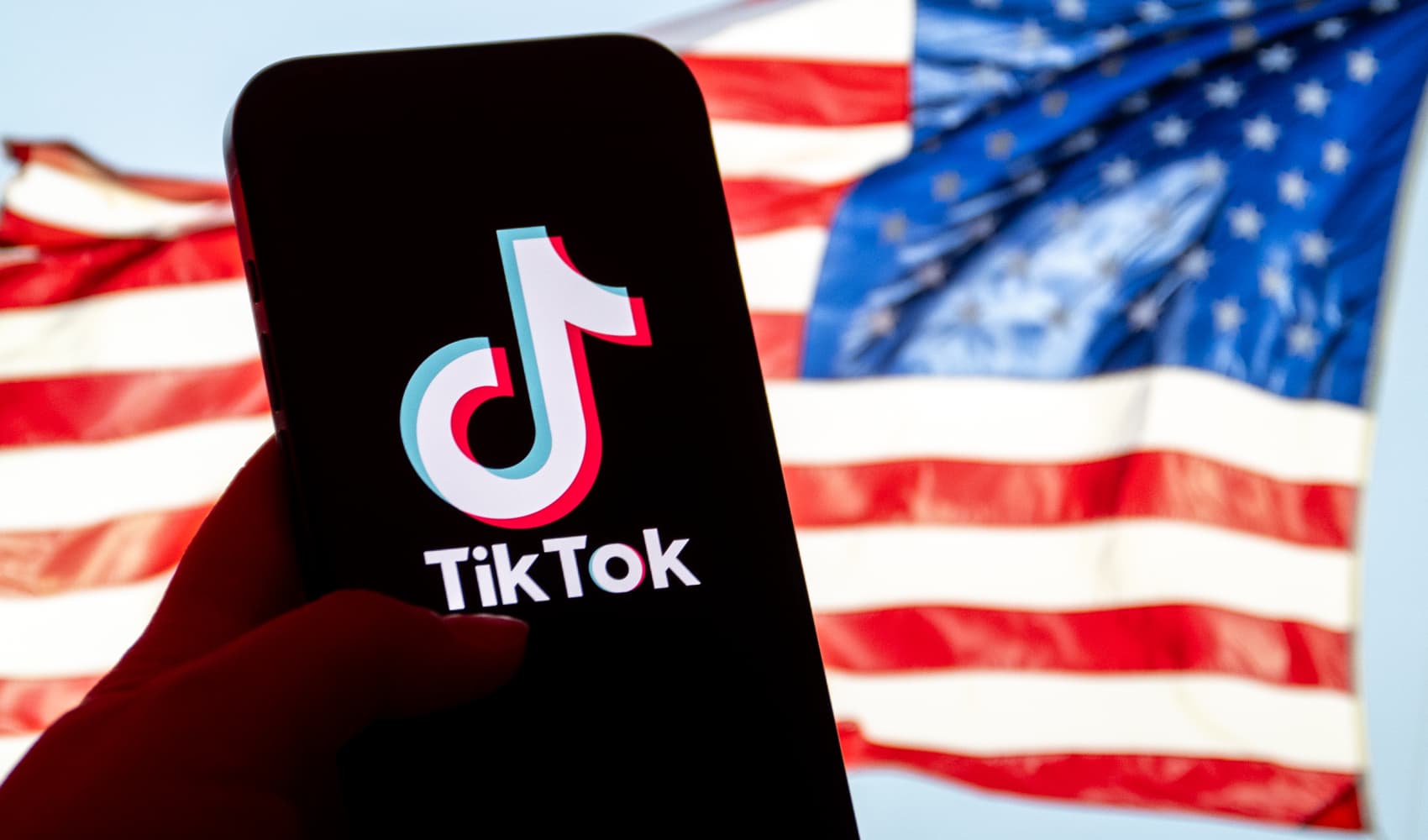
- The U.S. federal government is conducting a practice run this week of its coronavirus vaccine distribution networks with some test shipments.
- The drugs are awaiting emergency approval from the U.S. Food and Drug Administration in "just a few weeks," HHS Secretary Alex Azar said.
- The shipments, which won't contain the actual vaccine vials, will test the systems used by state health departments to order vaccine doses to "ensure that all goes smoothly," Azar said.
The U.S. federal government is conducting a practice run this week of its coronavirus vaccine distribution networks with some test shipments as the drugs await emergency approval from the Food and Drug Administration in "just a few weeks."
The dry run is part of a series of field exercises under the Trump administration's vaccine program Operation Warp Speed, Health and Human Services Secretary Alex Azar told reporters during a press briefing Tuesday. The shipments, which won't contain the actual vaccine vials, will test the systems used by state health departments to order vaccine doses to "ensure that all goes smoothly," Azar said.
Pfizer, which is developing its vaccine with BioNTech, applied for emergency use authorization from the FDA on Friday. The agency is expected to review Pfizer's vaccine when its Vaccines and Related Biological Products Advisory Committee next meets on Dec. 10. Moderna is expected to submit its application in the coming days so both vaccines could potentially get reviewed at the same time.
"If all goes well, we could be distributing vaccine soon after Dec. 10," Azar said. "We believe we can distribute vaccine to all 64 jurisdictions within 24 hours of FDA authorization. Then we hope administration can begin as soon as the product arrives."
The U.S. is aiming to deliver 40 million doses of Covid-19 vaccine by the end of the year. Initial doses would be prioritized for health-care workers and people most vulnerable to serious disease. Azar said CVS Health, which is partnering with the federal government to vaccinate nursing home residents, is prepared to begin administering shots within 48 hours of FDA authorization.
Money Report
Last week, Pfizer announced that it had selected four states — Texas, New Mexico, Tennessee and Rhode Island — to operate a pilot delivery program designed to work out kinks in the company's distribution system.
As part of the program, the company will ship vials filled with saline solution before it starts shipping the actual vaccine, said Pfizer spokeswoman Kim Bencker.
Because Pfizer's vaccine requires ultra-cold storage, the company has built temperature-controlled containers using dry ice to help store its vials for up to 15 days. The boxes, however, can't be opened for more than one minute twice a day, according to STAT News.
Since both Moderna's and Pfizer's vaccines require two doses each, the federal government's plan is to distribute the first vial of vaccine and then follow up with the second dose delivery more than 20 days later, Gen. Gustave Perna, who is leading the federal government's effort to distribute the vaccines, said.
Each state's strategy on how they will remind people to return for their second vaccine shot varies, Perna said. Some have said they will provide a card with a date telling people when to return for their second dose while others have more sophisticated automated methods to send reminders, he said.
"We're working on this constantly," Perna said. "We work rehearsals of different scenarios to make sure we're capturing all the nuances of the delivery, but each and every week we get stronger. It's not lost on anybody listening, we're one week closer to distributing the vaccine."
Operation Warp Speed is using a software platform named Tiberius, which was developed by Palantir, to help local health officials decide where to allocate vaccine doses. The software will help the federal government allocate the amount of vaccines each state will receive, and local officials will use Tiberius to "decide where every allocated dose will go — from local doctors' offices to large medical centers," according to a press release.
The U.S. Department of Defense is responsible for delivering the coronavirus vaccine vials, but it's up to the states to decide where the shots will end up.
"This way the leadership of the state has the maximum capability and capacity to plan, look through different scenarios and make a final decision to best impact the people of the United States," Perna said.
-- CNBC's Will Feuer and Berkeley Lovelace contributed to this report.






